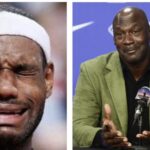In 1988, Anheuser Busch forged a groundbreaking alliance with the National Football League that left an indelible mark on the landscape of television commercials. This transformative partnership gave birth to the iconic “Bud Bowl” during the Super Bowl that season, captivating audiences worldwide.
The Bud Bowl continued for eight editions, concluding in 1997, but the collaboration persisted. However, an unexpected turn of events, spearheaded by Dylan Mulvaney, would bring this era to an abrupt end.
Recently, the NFL made a surprising announcement, declaring the termination of its partnership with Budweiser due to concerns about the brand being deemed too contentious for spirited football enthusiasts. According to Joe Barron, the NFL Head of Stadium Security, the decision was motivated by a desire to avoid additional disruptions caused by fans engaging in political disputes within the stands.
“We’re dealing with unruly fans as it is, and we don’t need the added complexity of political disagreements spilling over. The situation in the drunk tank in Philly would become a battleground,” remarked Barron.
Indeed, the potential for conflict is real, especially among individuals from rural New Jersey who mistakenly identify with Philadelphia due to its proximity to their rural surroundings. These individuals might take offense at those enjoying a Bud Light, donning a rainbow, or sporting a hairstyle deemed suspiciously liberal.
In response, the NFL is considering a shift towards a less controversial beverage, with Pabst Blue Ribbon emerging as a leading candidate. The rationale behind this choice is the perceived lower likelihood of political clashes associated with the brand. According to Barron, “It’s a prudent policy, and we’re leaning towards something less polarizing. Pabst Blue Ribbon seems promising, given that we’ve only come across one Pride shirt with their name on it, and it appears to be homemade.”
In a surprising twist, Budweiser has managed to find itself on the wrong side of the NFL’s tolerance spectrum. In the ever-evolving landscape of cultural sensitivities, even a longstanding brand like Budweiser has encountered challenges in aligning with the NFL’s vision. The unfolding events serve as a reminder of the complex dynamics at play in the intersection of sports, politics, and popular culture.


